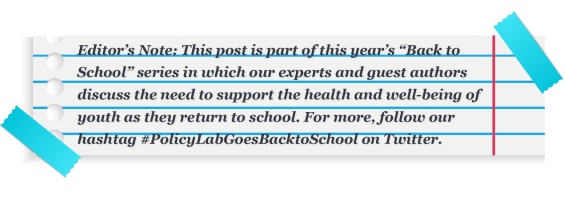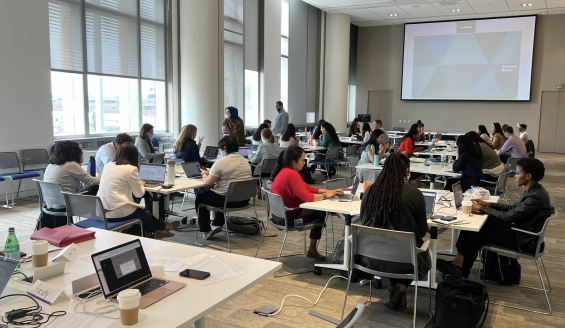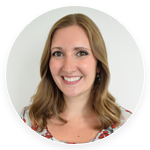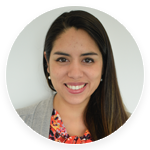Language Inclusivity: Including All Voices for Equitable Health Research
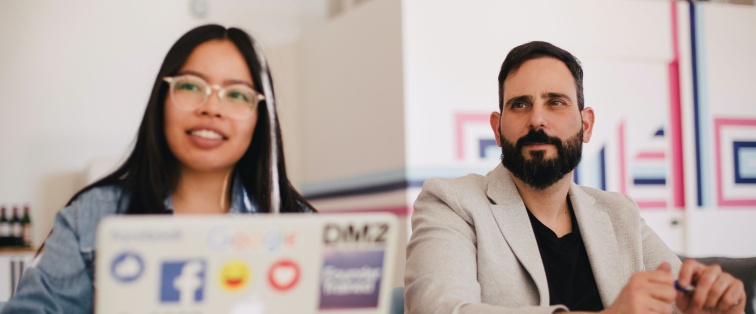
Nearly one in ten children living in the U.S. has a parent who speaks English less than “very well.” Among Asian and Latiné children, the proportion is closer to four in ten. Within the world of child health research, language remains a significant barrier to equitable research recruitment and inclusion. However, education for pediatric, child psychology, nursing or maternal-child health research trainees does not routinely include education on working across language differences. This is despite the fact that many young researchers are themselves bilingual or bilingual-bicultural.
To address this training gap, our team at Children’s Hospital of Philadelphia (CHOP) and Penn State University’s Applied Linguistics program developed the Short Course on Multilingual Approaches to Research Studies (MARS). The goal of MARS—which aligns with PolicyLab’s focus on health equity and improving practices to support inclusivity—is to strengthen the health research workforce by equipping investigators, including those who are bilingual or bicultural, with skills and knowledge to design and manage protocols that are inclusive of children and families who speak languages other than English.
Earlier this summer, PolicyLab faculty and other CHOP team members hosted an incredible, innovative group of health researchers from across the country for our second annual Short Course on MARS.
As students around the country head back to school, we’re taking the opportunity to reflect on the importance of continuing education for child health researchers by connecting with MARS alumni to ask them about how they have incorporated multilingual research into their work:
Dr. Danielle Cullen is a health policy and health services researcher focusing on the integration of social care into medical care.
Q: Why is inclusion of participants or families who speak languages other than English important to your work?
A: Programs and policies aimed at addressing social need cannot be successful unless the evidence underpinning these initiatives includes the perspectives of marginalized patient populations. Linguistically diverse participants have been historically underrepresented in clinical research, and furthermore, there is a dearth of guidelines for conducting language-inclusive social needs-focused research in the pediatric health care setting.
Q: What’s an important lesson learned that you would share with other health researchers seeking to include families who speak languages other than English?
A: I have learned that it’s important to consider your multilingual approach from the very start of your research plans. In this way, you can appropriately plan timing and budget for translation and pilot testing of multilingual materials, involvement of interpreters and, if possible, involvement of bilingual staff. (Don’t forget about students! They’re an amazing resource for motivated, bilingual study team members!) The biggest takeaway in all this work is that while it takes extra planning and effort, health researchers seeking to include families who speak languages other than English will be amazed at how these approaches enhance breadth, depth and applicability of their research findings.
Dr. Kate Wallis is a developmental behavioral pediatrician and researcher focused on improving the identification and age of diagnosis of autism spectrum disorder among children from minority backgrounds.
Q: What was your biggest takeaway from MARS?
A: Conducting high-quality studies relies on incorporating diverse participants, including populations who speak languages other than English. Adding participants who speak other languages should not be an after-thought, and the MARS course gave me concrete approaches to ensure inclusion of linguistically diverse populations from the outset. The course focused on topics like budgeting, truly informed consent, plain language texts, cultural and linguistic translation of study materials and performing community-engaged research. I have already begun using these skills as I plan my next projects.
Q: How does what you learned at MARS contribute to your understanding of equity in health research?
A: Health equity research relies on including voices of those who have been marginalized. Developing and conducting research studies that include people who speak languages other than English is the only way that we can ensure that proposed solutions to inequities actually achieve their goals.
Dr. Diana Montoya-Williams is a neonatologist and researcher focused on improving maternal-child outcomes for Latiné and other minoritized families.
Q: How are you incorporating what you’ve learned at MARS into your current research?
A: Prior to MARS, I had begun to engage in bilingual research studies that reflected the linguistic abilities of my research team. However, participating in MARS has opened my eyes to the ways in which my future studies can recruit and engage participants that speak languages with more limited diffusion. In particular, I have been able to advise many collaborators about the ways in which we can use short-form consents and our hospital's language services to interpret for research procedures so that we don't have to exclude participants who do not prefer to speak English. In addition, I am a co-investigator on a study for which we are now taking a very thoughtful approach to ensure our study materials are not just translated but also make sense and feel culturally appropriate. We have engaged a team of diverse Spanish-speakers to capture how language nuances may be interpreted by people from different Spanish-speaking countries, which is a step I'd never undertaken or even considered prior to the MARS conference. Finally, I am much savvier now about how to budget for multilingual needs as I plan my future studies so that participants who prefer languages other than English are not systematically excluded due to budget and feasibility barriers.
Q: Why is it important for researchers to engage in trainings like MARS, or continuing education in general?
A: People who prefer to speak a language other than English are often systematically excluded from research. This contributes to disparities in health care access and health outcomes that might be experienced by such individuals and communities, because science does not include and therefore reflect them. Often, researchers feel overwhelmed at the thought of recruiting people who don't speak English. However, attending MARS made it feel not only feasible and achievable, but also critical and indispensable if we are to conduct science fairly and not contribute to ongoing disparities. I feel that all who engage in research with humans should receive trainings like MARS, not just those who seek it out.
Since MARS wrapped up earlier this summer, we’ve heard from alumni who revised grant submissions to strengthen multilingual inclusion and others who are now collaborating with colleagues they met during MARS. We were also honored to host Dr. Paula Artistizabal for a webinar in June during which she shared her work to strengthen equitable, ethical inclusion of Hispanic/Latiné families in pediatric oncology research. And one of our advisors, Dr. Shonna Yin, is launching a PCORI-funded initiative to identify and test the most effective strategies for research teams seeking equitable inclusion of families who speak language other than English.
As Dr. Montoya-Williams noted, it’s an exciting time for those of us seeking to conduct science fairly. We plan to host our third cohort of MARS trainees in Philadelphia on May 22-24, 2024. Applications will open in October. To learn more, sign up for our listserv or follow PolicyLab on social media.
